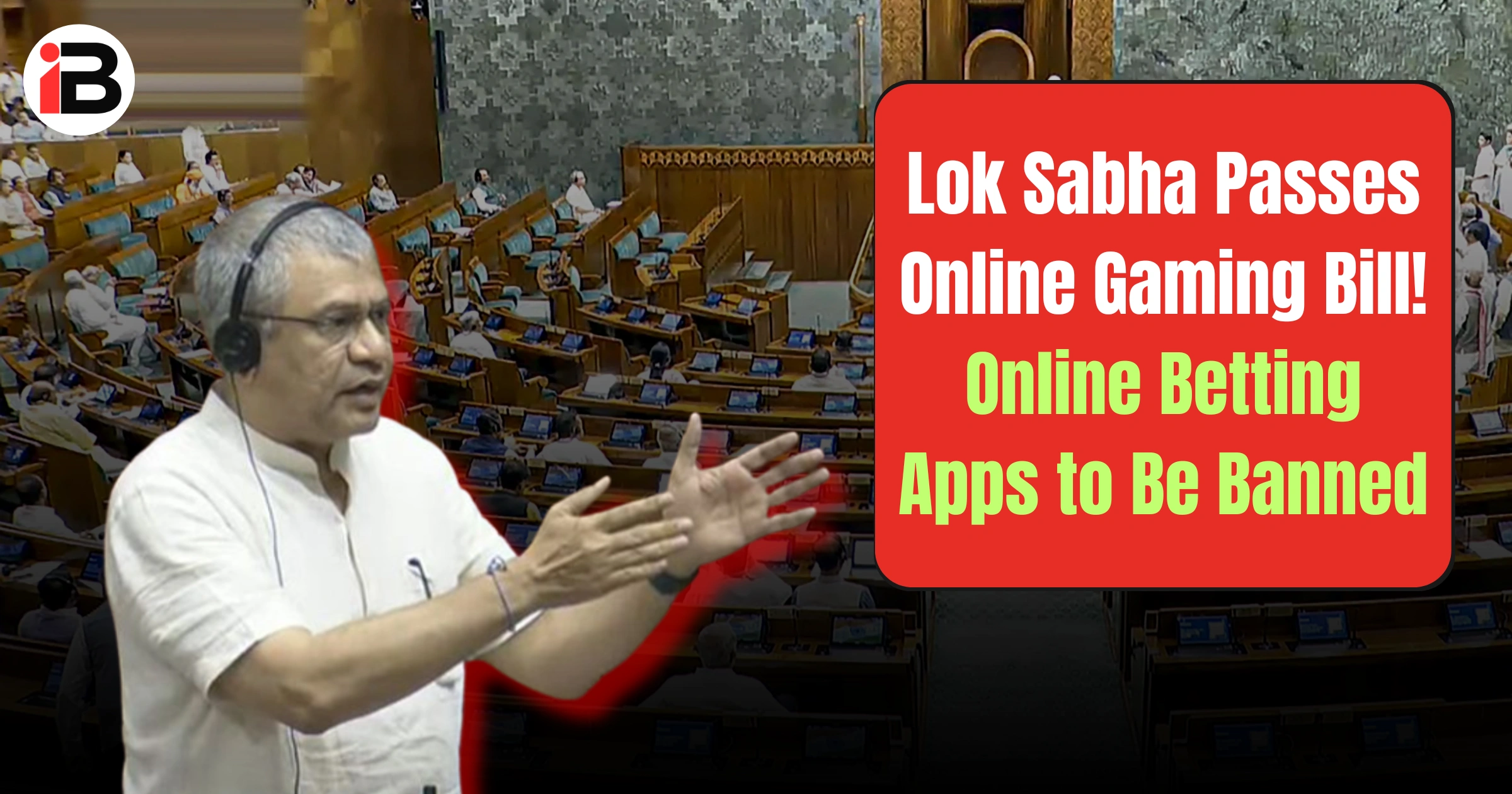Lok Sabha Passes Online Gaming Bill: The Lok Sabha has passed the Promotion and Regulation of Online Gaming Bill, 2025, setting the stage for a massive shake-up in India’s digital gaming industry. The law bans all real-money games, including fantasy sports, poker, and rummy, while actively encouraging esports and social gaming. This dual approach has left the industry divided; some see it as a step towards a healthier gaming culture, while others worry about jobs, investments, and the future of digital innovation in India.
A Complete Ban on Real-Money Games
At the heart of the bill lies a sweeping prohibition on real-money gaming. Unlike earlier debates that distinguished between games of skill and chance, the new law treats them all the same. Whether it’s fantasy cricket or online rummy, if money is involved, it will no longer be allowed. The government’s argument is rooted in public welfare, pointing to rising cases of addiction, financial distress, and misuse of these platforms for money laundering.
From a reporter’s perspective, the intention sounds noble, but the method feels extreme. Shutting down a multi-billion-rupee sector overnight risks pushing players to unregulated offshore platforms rather than solving the problem. Regulation with tighter safeguards might have been a more balanced route.
Esports Finally Gets Its Moment
While real-money games are being written off, esports has been given formal recognition as a competitive sport. For years, India’s esports community has been craving legitimacy, and this bill finally provides it. Competitive gaming will now enjoy government support, training facilities, and a structured ecosystem, even paving the way for India’s presence on the Olympic stage in 2027.
This is perhaps the brightest spot in the legislation. As someone who has closely followed India’s digital entertainment scene, I believe esports can genuinely put India on the global map. Unlike gambling-linked apps, esports promotes skill, teamwork, and talent. If nurtured well, it could generate thousands of jobs, attract sponsors, and give India its own world-class gaming heroes.
Economic Fallout of the Ban
The economic shock is hard to ignore. Industry federations estimate that the ban could wipe out over ₹20,000 crore in annual tax revenue and put around 200,000 to 400,000 jobs at risk. Popular names like Dream11, MPL, and Games24x7, which have become household brands, face an uncertain future. Beyond gaming companies, allied industries such as advertising, sports sponsorships, cloud services, and digital payment providers will also feel the ripple effect.
This is where the bill looks most worrying. While the government believes the ban will protect society, it could backfire by driving the demand underground. People who want to play will still find ways through offshore apps, but now without any safety nets or taxation. Instead of protecting players, this could actually expose them to greater risks.
Social and Educational Games in the Spotlight
Not all games are facing the axe. The bill carves out space for social and educational games that run on subscriptions or access fees without any wagering. These games are being positioned as safe, creative, and even educational. Developers working in this space can now experiment with age-appropriate, family-friendly content.
While this sounds positive, there is a catch. Every game will need to go through the new Online Gaming Authority for categorisation and approval. For large companies, this might be manageable, but for small indie developers, such red tape could slow down creativity. In my view, the government should ensure the compliance process remains light and supportive for new talent. Otherwise, the risk is that India’s smaller studios may lose steam before they even begin.
The New Online Gaming Authority
To oversee this new structure, the bill sets up a centralised Online Gaming Authority. It will categorise games, handle complaints, issue guidelines, and even block unlawful content. By scrapping the earlier idea of self-regulatory bodies, the government has taken direct control of the sector.
This shift shows a clear lack of trust in the industry’s ability to self-regulate. While centralisation brings clarity, it also raises concerns. Granting officials the power to search, seize, and shut down platforms without prior warrants feels heavy-handed. As technology evolves, the line between control and overreach must be carefully watched.
Conclusion
The Lok Sabha’s approval of the Online Gaming Bill marks a turning point in India’s digital gaming story. The law draws a hard line: esports and social gaming are in; real-money games are out. On one side, this could nurture esports into a national strength. On the other, the blanket ban risks erasing a thriving industry that could have been better regulated. Personally, I feel the bill has taken the safer political route at the cost of innovation, jobs, and foreign investment. India’s gaming future now depends on whether esports and safe gaming can rise quickly enough to fill the massive void left behind.












